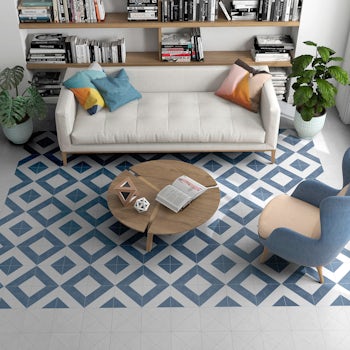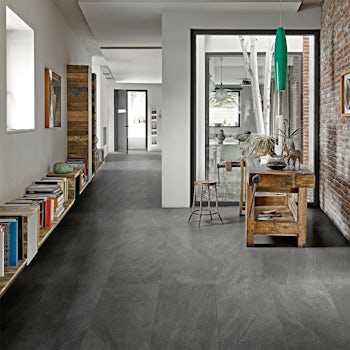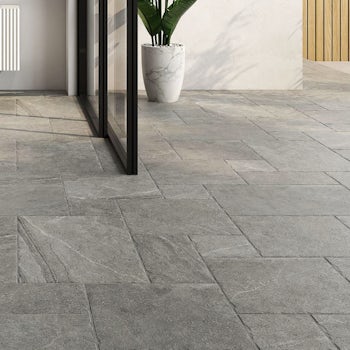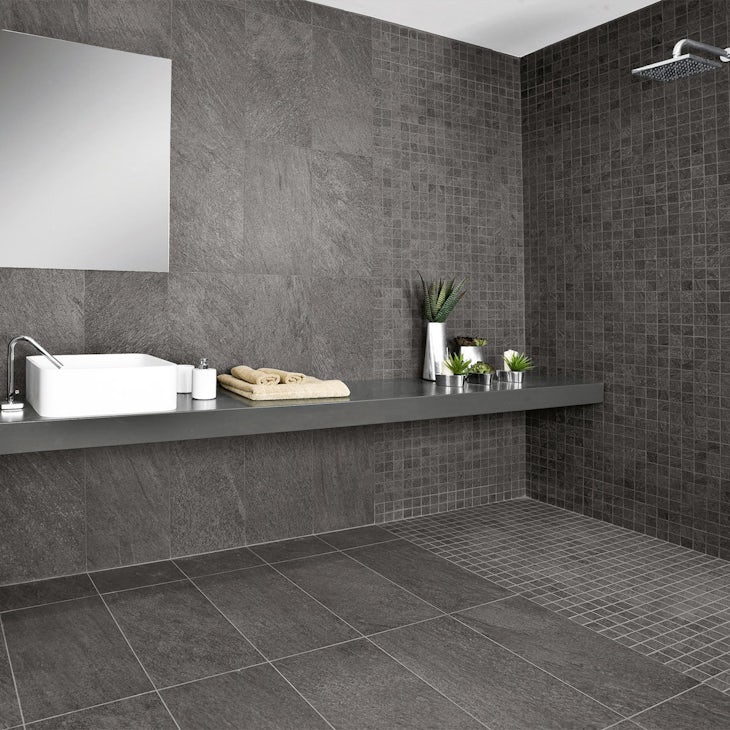Floor Tiles - 4 Things You Need To Know
When choosing floor tiles for your home, there are a number of factors you should consider, so here are our top tips and advice to ensure you choose the right floor tile for your home.
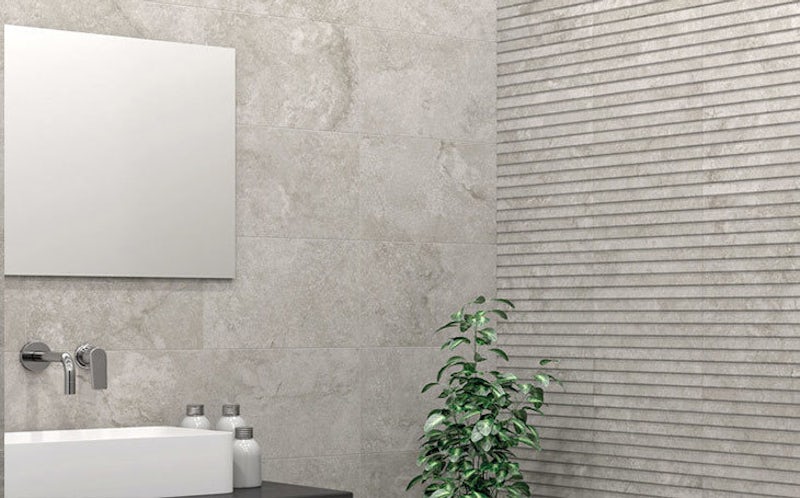
1. The floor tile colour
You should aim to coordinate your floor tile colour with the entire room, not just the wall tiles. Think about equipment and cupboards in the room, accent colours and work tops. The room scheme may have a style to adhere to or a colour scheme where only certain colours will match. Floor tiles will last for many years so it is best to choose a neutral colour that will stand the test of time. The amount of natural light in your room may determine whether your floor tiles need to reflect light (lighter colours) to make the room feel larger or if a darker colour will suit. A little known fact is that glossy black floor tiles can often show dirt more than lighter coloured floor tiles. Of course, glossy back floor tiles look wonderful, but this is a factor you may want to consider.
2. The pattern & size of floor tile
Floor tiles can be fixed to the floor in a variety of ways, such as standard fixing or brick-bonded/staggered, but as long as you plan your tile fixing anything is possible! There are certain floor tiles that have a variety of sizes and will have a modular pattern to follow for each square metre. The size of your floor tile determines how many grout lines are shown on the flooring, and fewer grout lines can create an illusion of more space, which is great for those tight spaces.
3. Ceramic or porcelain?
Porcelain tiles are stronger than ceramic tiles because they are denser. It is because of this that porcelain tiles are also suitable for outdoor use as they will not soak up water which can freeze and crack the tile. However, it depends on the traffic or usage the floor tile you are laying as to whether you need porcelain or ceramic. Ceramic tiles are graded which indicates whether they are suitable for domestic or commercial use. If you were tiling the floor of a shopping centre, then porcelain would be required. If you were tiling a domestic kitchen, most ceramic tiles would be suitable. The downside to using porcelain tiles is that they are more difficult to cut and drill through because of their strength, which might be reflected in a quote given to lay the tiles. It is always worth checking with us, so we can pass on our years of experience and knowledge to make sure you get the perfect tile for your home.
4. Wetroom floor tiles
If you are tiling a wetroom floor, there will be a gradient to the floor towards the drain. It is no problem tiling a floor with a slope as long as you ensure this element is incorporated into the plans. Mosaic tiles that are strong enough (such as glass mosaic tiles or glazed porcelain) are an excellent choice due to their small sizes of the mosaic tiles. For example, Split Mosaics are an ideal choice.
If you have any questions, please don't hesitate to get in touch. Call us today on 0117 959 8888 or email helpdesk@tileflair.co.uk
Related Posts

The Benefits Of Underfloor Heating
Efficient, sustainable, cost effective. Now more than ever, electric underfloor heating is the smart way to heat your home.
Read More
How Much Does Electric Underfloor Heating Cost?
Underfloor Heating with Amber at Tileflair is an affordable luxury that will you will not regret, especially during those chilly…
Read More
